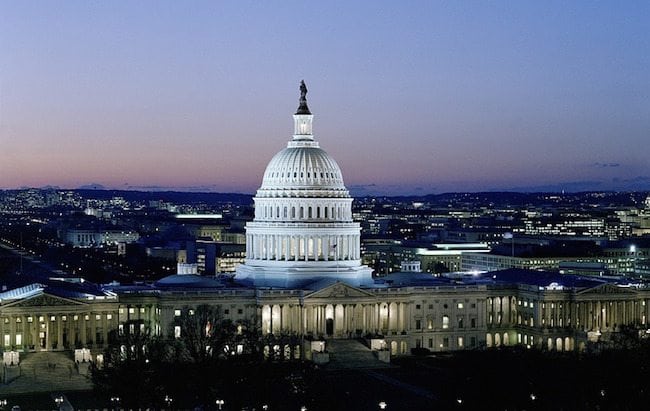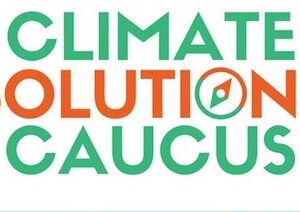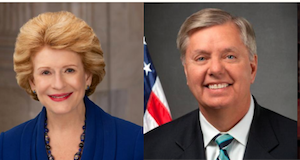By Flannery Winchester
These days, Washington’s gridlock can have even the most optimistic people tossing up their hands. It seems like everything follows a predictable, partisan script.
Take, for example, an appropriations bill Congress voted on last month: one of the amendments in the bill proposed to “eliminate funding for the Air, Climate and Energy Research Program under EPA.” You can probably assume who voted for that amendment and who voted against it, straight down the party lines—right?
Wrong.
Toss the partisan script and forget your assumptions. This amendment was defeated, thanks to 33 Republicans who broke ranks to vote against it. That’s 33 Republicans who understand that it’s only common sense to fund efforts for clean air and a stable climate. 33 Republicans who are ready to reject the status quo in order to support the greater good.
A few of those 33 were familiar Republican names, like New York representative Chris Gibson, who introduced a resolution last year calling for action on climate change. Most of his co-sponsors for that resolution also voted down this amendment — a big shout out to Representatives Costello (PA), Curbelo (FL), Dold (IL), Fitzpatrick (PA), Hanna (NY), Katko (NY), LoBiondo (NJ), Reichert (WA), Ros-Lehtinen (FL) and Stefanik (NY). (If these are your representatives, thank them on Twitter for this vote and for supporting the Gibson resolution!)
But many of the other names were unexpected — Republicans who hadn’t stepped up in defense of logical climate legislation before now. So is this vote a one-off? Or is it, perhaps, an indicator of sanity starting to guide the climate conversation? We spoke with a few CCL staffers in the Washington, DC office to find out.
The Shift is Real
Danny Richter, CCL’s Legislative and Science Director, says, “This is the latest evidence that this partisan divide is crumbling. It’s getting easier to get Republicans to sign onto things like this.” And what’s more, this cooperation is happening civilly! He points to the House’s bipartisan Climate Solutions Caucus, saying, “The fact that Republicans and Democrats sit across from each other and have pleasant conversations on any topic, much less on global warming, is remarkable.”
CCL’s Senior Outreach Liaison Stephanie Doyle agrees. “The vote to me shows that Republicans are beginning to break down the bias that all of them are anti-environmental. Republicans are working to move back into this space and want to sit at the table on climate solutions.” This is a positive trend both for the future of the planet and the future of the party—polling shows that young Republicans are concerned about human-caused climate change. Doyle says, “Republicans are realizing that they need to answer to the younger generation of their own party who want to see conservative solutions to this issue.”
Growing Support
Doyle points out, “33 Republicans is still a long way to go from a majority on the issue of climate change, but it is definitely encouraging.” Happily, there’s evidence to suggest our cause has even more support out there than these 33.
There have been a host of other votes like these, where a few Republicans bucked the status quo and cast a pro-environment vote. The most exciting fact is that it’s not the same Republicans every time — often, depending on the bill, it’s different representatives stepping across the aisle. For example, when a June amendment wanted to prohibit the Department of Defense from spending money to prepare for climate change, 24 House Republicans vote against it. But only 15 of those representatives overlapped with the July vote.
That tells us there’s an even bigger group of Republicans out there who, on one bill or another, have voted for common sense when it comes to climate change. If we can all keep a laser focus on the need to protect our common way of life, that group of climate-conscious legislators could eventually include nearly every Republican in the House.






